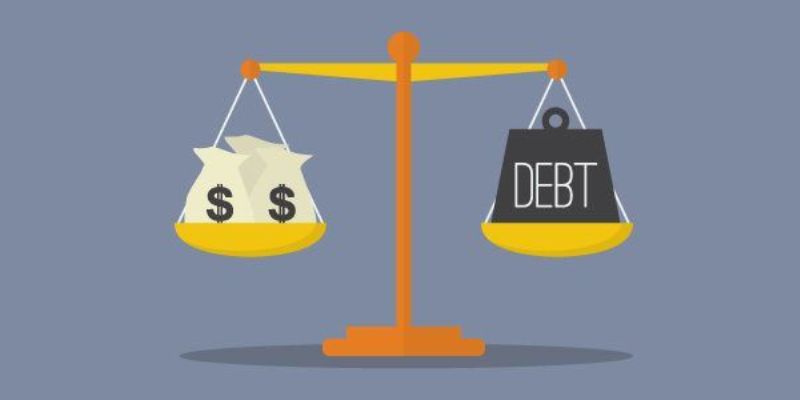What Is a Catastrophe Insurance?
Dec 09, 2023 By Susan Kelly
Natural disasters like earthquakes, floods, hurricanes, and manufactured catastrophes like riots or terrorist attacks are all covered by catastrophe insurance. Standard homeowner's insurance plans often do not cover these high-cost, low-probability situations.
Catastrophe Insurance: A Quick Guide
Homeowner's insurance often does not cover damage or loss arising from certain sorts of incidents. A general rule of thumb is that homeowners insurance does not cover damage and devastation caused by natural disasters such as earthquakes or flooding. Most homeowner's insurance plans only cover specific types of dangers, and these might vary widely from one insurer to the next. An "all perils" insurance may have exclusions or restrictions that prevent you from being completely protected in the case of a catastrophic loss. Disaster insurance can be in handy for situations like these.
Is There Anything I'm Not Covered For?

According to the Insurance Information Institute, when an abnormally severe natural or artificial disaster results in insurance claims over $25 million, it is considered a catastrophe. Not all insurable calamities necessitate the purchase of separate policies. Depending on the policy, you may be able to add them as a rider to existing homeowners, renters, or car insurance.
Included in the list of disasters that can be insured are:
Hurricanes
If you live in a high-risk location, you may need to purchase an additional policy or add a rider to your existing home insurance to protect yourself against severe storms.
Earthquakes
Earthquake insurance is a distinct policy in high-risk places along fault lines, such as California, Alaska, and Hawaii.
Tornadoes/Windstorms:
Windstorm insurance may be a must if you reside in the Tornado Alley region of the Midwest or the Great Plains. A homeowner's policy usually includes this kind of protection.
Hailstorms
Hailstorm damage to a car can be handled by comprehensive coverage if it is in effect at the time of the storm and if it is covered by a standard home or auto policy.
Fires and wildfires
While forest or brush fires are unavoidable tragedies, a home or automobile might be destroyed by a fire under the terms of a homeowners or comprehensive insurance policy. The policy does not cover a home or automobile owner who intentionally starts a fire.
Catastrophe vs. Hazard Insurance: Which is Better?

"hazard insurance" and "catastrophe insurance" are often used interchangeably. Insurance against "acts of God" (volcanic eruptions, lightning, tornadoes, etc.) is rare. Alternatively, the term "hazard insurance" can refer to the portion of a homeowner's policy covering the above items. On the other hand, catastrophe insurance usually refers to a stand-alone policy that is distinct from standard homeowner's insurance and covers both manufactured and natural disasters.
Preparedness for Your Area
When the unexpected strikes, it's a good idea to have a family emergency plan. Fire escape plans should be in place in every home. Get familiar with your family's evacuation routes and meeting spots in an emergency like a fire. As with large storms, tornadoes, windstorms, and hurricanes occur in every region of the United States.
Always have a stock of non-perishable food and drink, as well as flashlights, batteries, and generators, on hand in an emergency. Contact your insurance company and any out-of-town relatives you can if you know what's coming.
Is Catastrophe Insurance Necessary?
It's difficult to plan for a disaster since it's uncontrollable and unexpected. It is difficult to forecast some catastrophic occurrences. Tropical storms, for example, are more frequent yet can still wreak enormous damage. There is a cyclical nature to some calamities.
Flooding may occur once every 200 years in some parts of the United States, while once every 100 years is the norm in others. A devastating flood occurred in Central California in 1861, creating an inland sea for six months, and experts fear that such a megaflood might occur again.
How Can I Get An Exemption?
You must submit an application to the Exchange to be considered for a position. The Healthcare.gov website has forms. A letter from the Exchange will inform you if you are eligible for the exemption or not. Consider catastrophic insurance if you are looking for a policy with a cheap monthly cost. People under 30 who are not excluded from paying for catastrophic insurance must be under 30 years old. The application is either accepted or rejected based on the specifics of your situation.
Can I Acquire Catastrophic Insurance With An Exemption?
A catastrophic health insurance plan may be available if you qualify for a hardship or affordability exemption. There are several benefits to having a catastrophic health insurance plan, including a deductible-free yearly checkup, some preventative treatments, and at least three primary care visits before you've met it. As a result, you may save more money with a different health insurance plan if you have a long-term medical problem.





